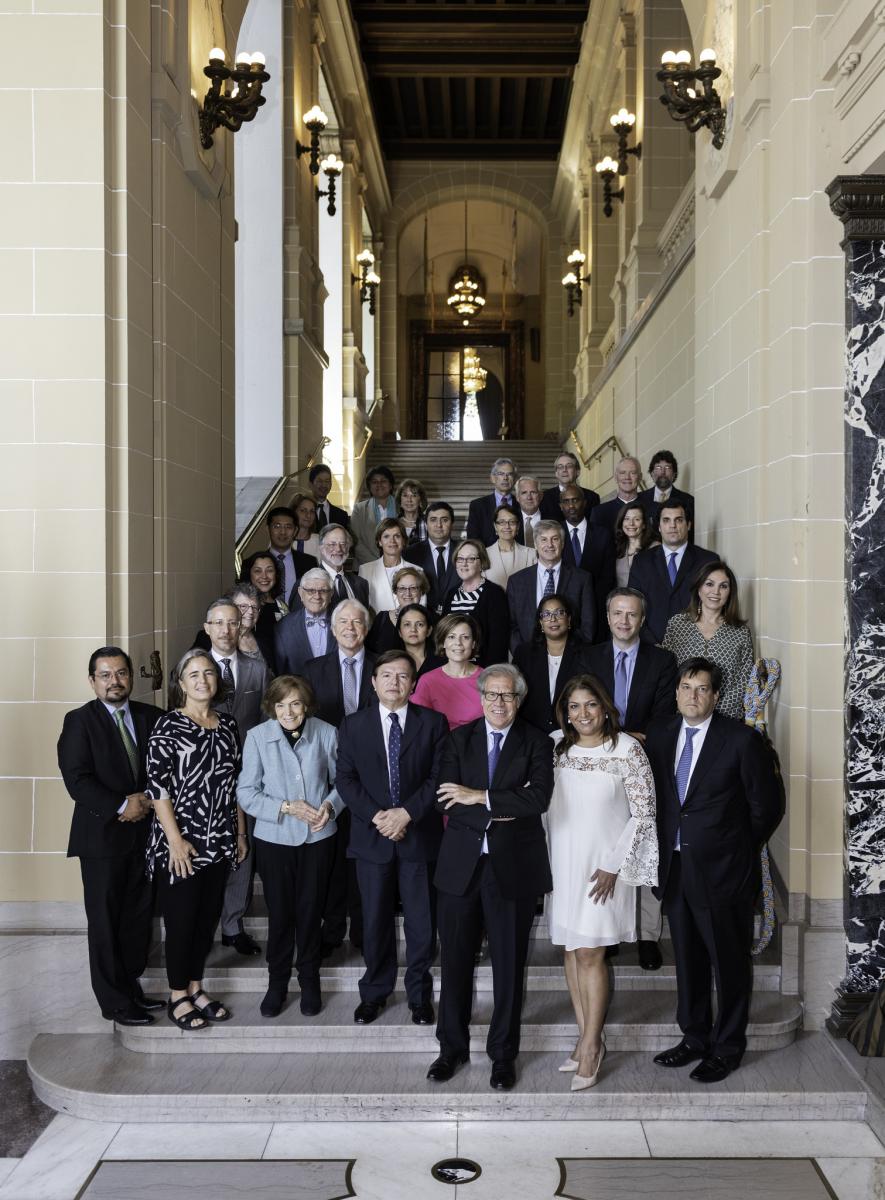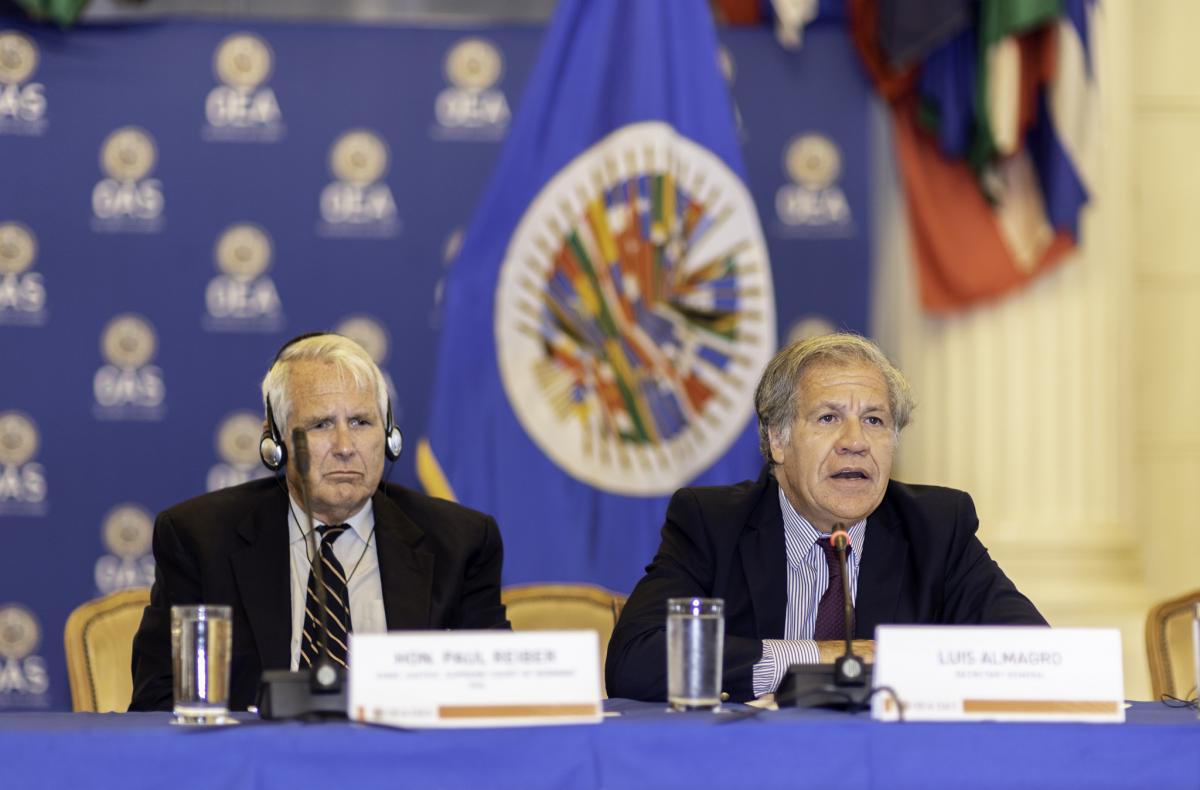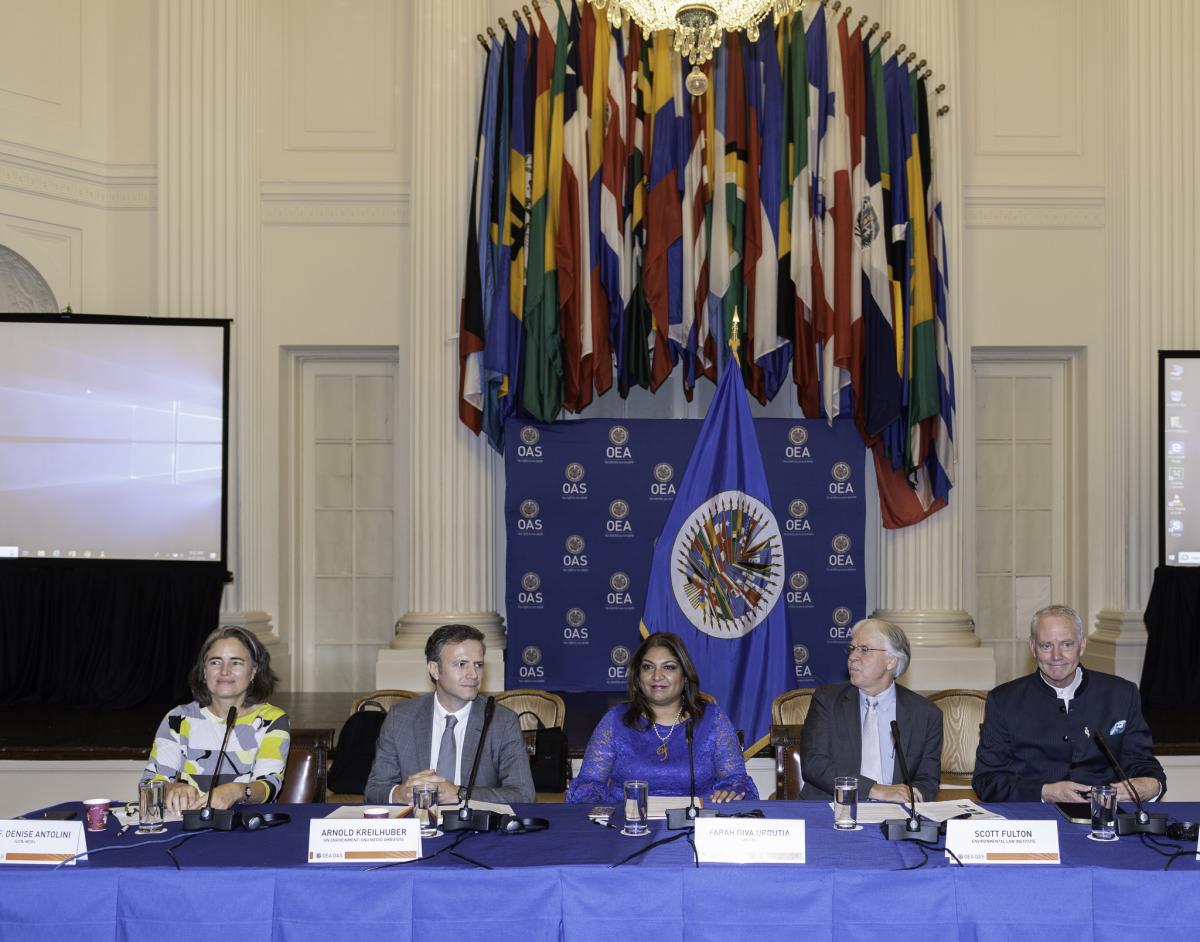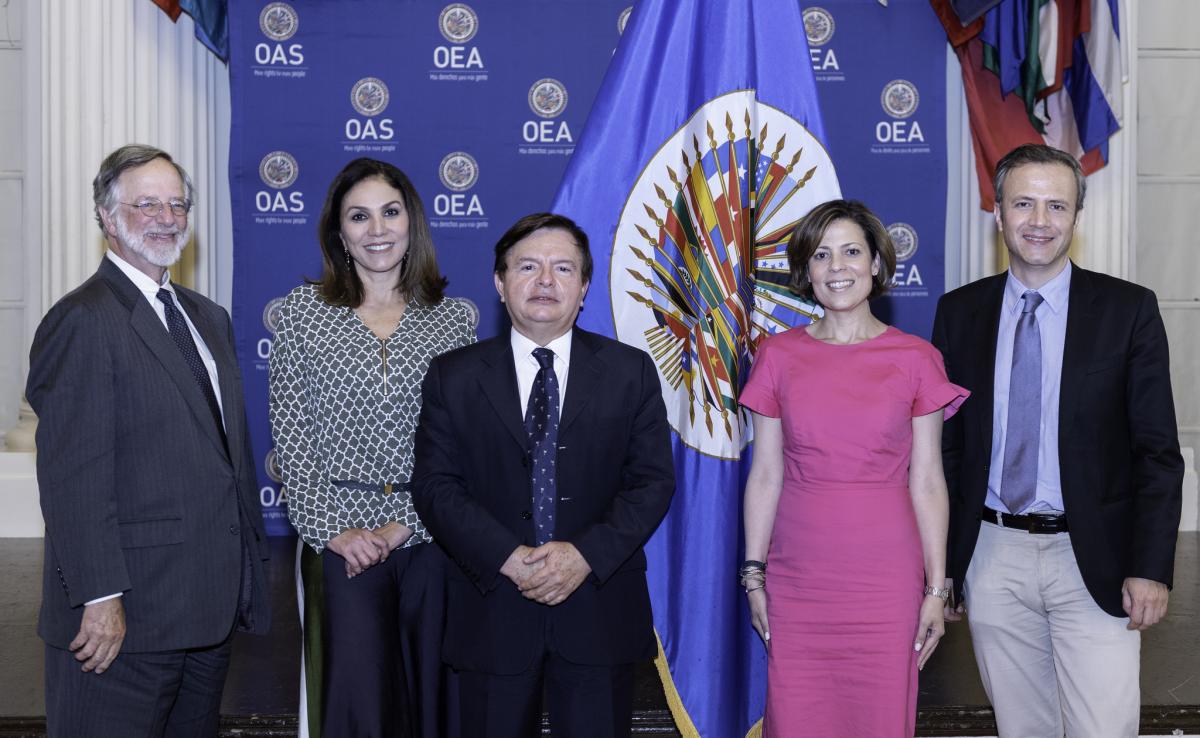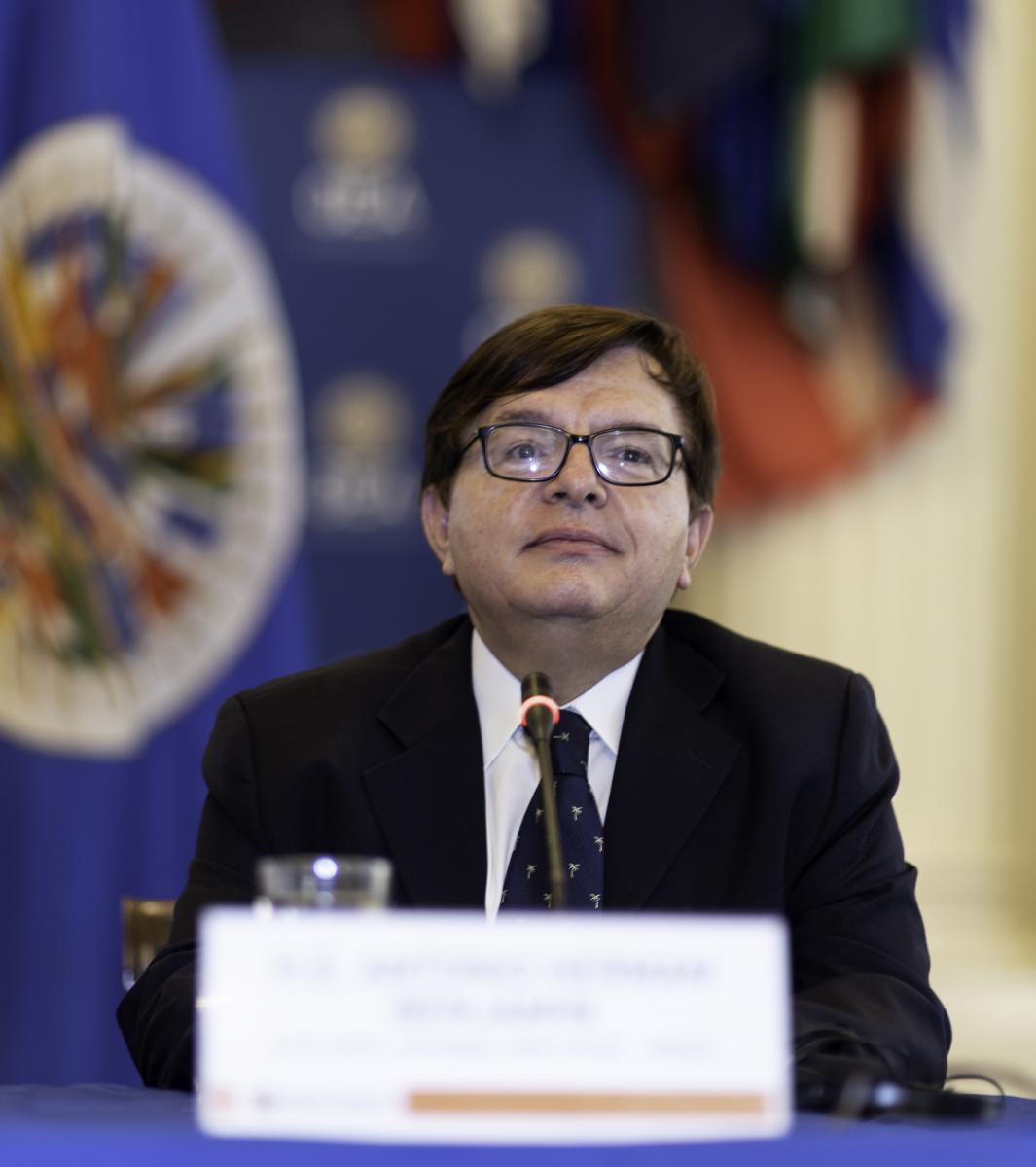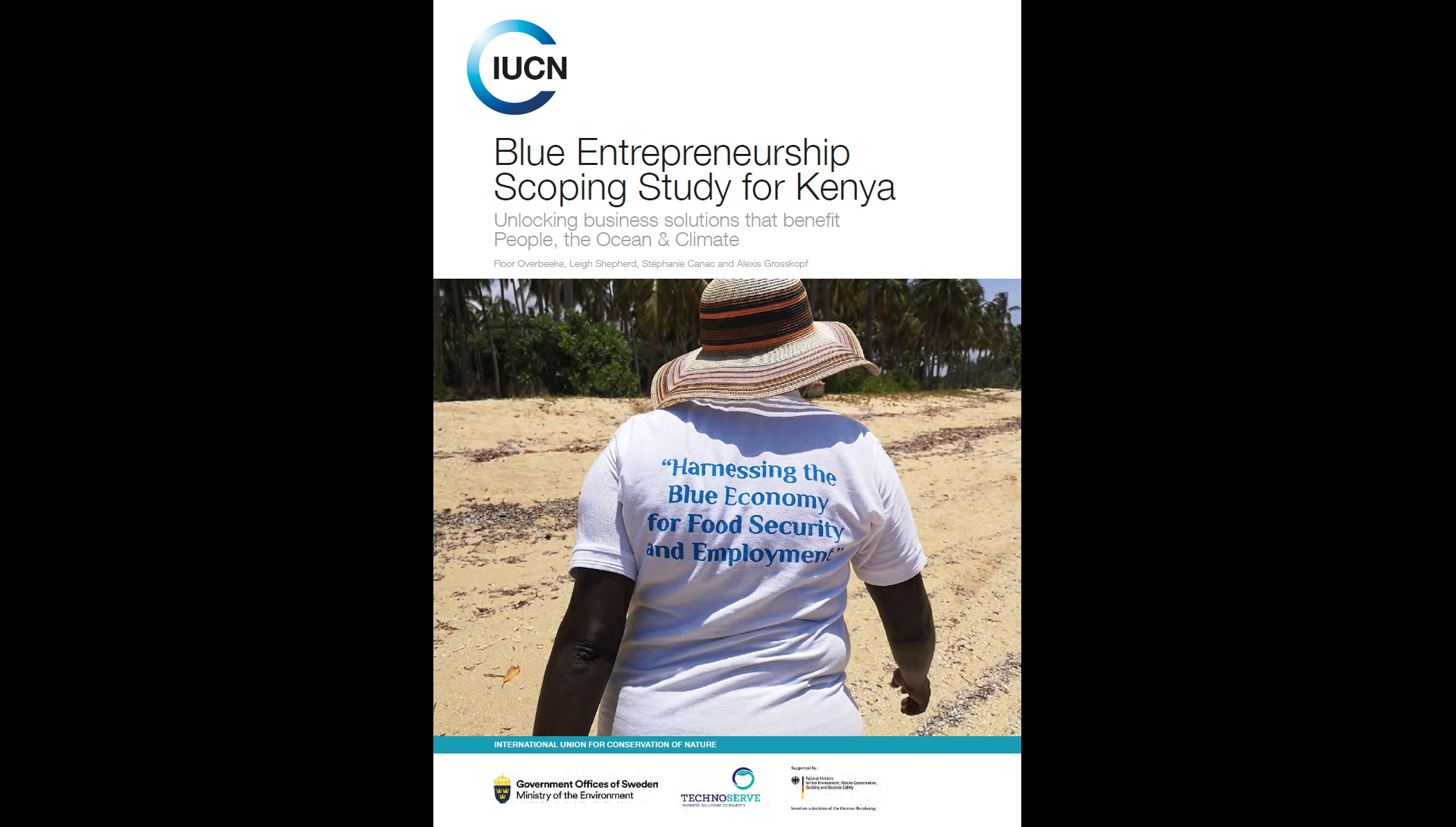Symposium on “Judiciary and the Environment: Adjudicating our Future”: A historic global gathering of U.S. and international judges held August 2018 at the Organization of American States in Washington D.C., by Claudia S. de Windt and Lucy Brown
Distinguished state supreme court justices from several U.S. States, and international jurists from OAS and UN member States, as well as selected academics, scientists, leading experts, ambassadors and diplomats from across the globe came together from 22-23 August 2018 to discuss Environmental Justice and the Rule of Law. The World Commission on Environmental Law (WCEL) of the International Union for the Conservation of Nature (IUCN) partnered with the Global Judicial Institute on the Environment (GJIE), the General Secretariat of the Organization of American States (OAS), UN Environment, and the Environmental Law Institute (ELI) to host the high-level Global Symposium on “Judiciary and the Environment: Adjudicating our Future” in Washington D.C.
Held in the beautiful ceremonial hall of OAS, the Symposium provided judges from the United States, Argentina, Norway, China, Brazil, El Salvador, the European Union, Mexico, Rwanda, Hungary, Chile, Barbados, and Colombia with a platform to identify emerging trends in the Environmental Rule of Law and exchange experiences in support of the role of the judiciary in addressing environmental challenges to multidimensional security. Featured keynote addresses were delivered by OAS Secretary General Luis Almagro and the Honorable Paul Reiber, Chief Justice of the Supreme Court of Vermont and President of the Conference of Chief Justices of the United States. Four high-level interactive panels focused on the following topics: (1) Environmental Rule of Law: Emerging Principles and Trends; (2) Climate Change, Pollution, and Judicial Remedies; (3) Water Justice and Ecosystems; and (4) Science in the Courtroom.
Following the panels, a final high-level discussion focused on the role of the judiciary in advancing the Environmental Rule of Law and several key issues emerged for follow up by the partners.
The symposium aimed to build bridges among judges from around the world at a historic moment in the development of the environmental rule of law when there are over 1,500 new environmental tribunals in over fifty nations and urgent demands for environmental justice. Following a joint welcome to the OAS House of the Americas by Scott Fulton, President of the Environmental Law Institute, and Ms. Farah Urrutia, Secretary of Multidimensional Security of the OAS, this high-level Global Symposium on judiciaries and the environment kicked off with keynote addresses from the OAS Secretary General, Luis Almagro, who noted that “Judges can close the gap between laws and their implementation, they are pillars of democracy, security, and social peace.” Following Almagro’s remarks, Vermont Chief Justice and President of the Conference of Chief Justices of the United States, Justice Paul Reiber, echoed this sentiment, remarking that “courts serve one master, and that master is the public trust.”
Substantive panel discussions shed light on worldwide developments in support of the environmental rule of law, highlighting initiatives such as the WCEL World Declaration on the Environmental Rule of Law, the GJIE Brasilia Declaration of Judges on Water Justice, and the proposed Global Pact on the Environment. Speakers identified trends related to specialized environmental courts and tribunals, as well as the supporting principles of the Environmental Rule of Law. Panelists also discussed recent climate-related jurisprudence and its impact in the Americas and beyond, and the legal implications of climate change including security, intergenerational equity, and rights of future generations.
WCEL Chair Antonio Benjamin gave a presentation on exciting new developments for the GJIE, including the launch of prototype on-line portal for judicial resources in partnership with INFORMEA and UN Environment. Trends in rules of evidence, case law and best practice regarding the role of science in environmental cases were addressed. Leading scientists Dr. Sylvia Earle, National Geographic Oceans Explorer in residence, and Dr. Thomas Lovejoy, of the UN Foundation, gave compelling keynote addresses emphasizing the importance of the judiciary in confronting the forthcoming environmental crises associated with climate change. Dr. Lovejoy stressed that “the decade starting in 2020 is the last decade of opportunity to advance the conservationist state of the planet.”
The final high-level discussion focused on the role of the judiciary in advancing the Environmental Rule of Law, establishing an order of peace, creating social justice, resolving disputes, and maintaining a stable judicial foundation for diverse societies in times of uncertainty.
Thanks to OAS, extensive video and programme information is available from this Global Symposium to provide a knowledge platform for future gatherings and cooperative endeavors.
Authors
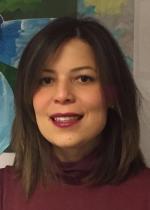 Photo: WCEL
Photo: WCEL
Secretariat of Multidimensional Security of the Organization of American States (OAS) and WCEL Steering Committee Member 2017-2020
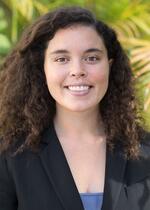 Photo: Lucy Brown
Photo: Lucy Brown
Law Clerk for Justice Michael D. Wilson of the Supreme Court of Hawai'i
